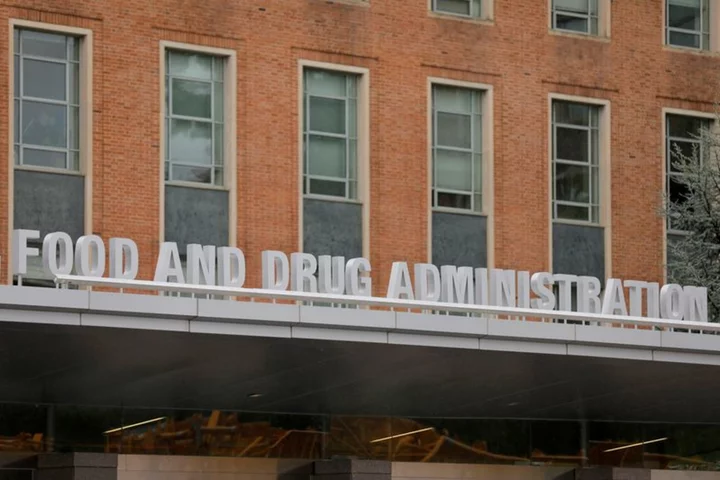(Reuters) -The U.S. Food and Drug Administration (FDA) said on Monday it had approved Sanofi and partner AstraZeneca's antibody therapy to prevent respiratory syncytial virus (RSV) in infants and toddlers.
The therapy, branded Beyfortus, was approved for preventing lower respiratory tract disease in infants born during or entering their first RSV season, and in children up to 24 months of age who remain vulnerable to severe RSV disease through their second such season.
The companies plan to make Beyfortus available in the United States ahead of the upcoming RSV season, Sanofi said, adding that it plans to share more information about the therapy's price closer to the season.
RSV is a leading cause of hospitalizations in infants and so far Swedish Orphan Biovitrum's treatment, Synagis, was the only approved preventive therapy in the United States for high-risk infants.
Unlike Synagis, which is given as monthly injections, Beyfortus is a long-acting therapy that can be given once every season to prevent infection regardless of additional medical conditions in infants.
According to the American Academy of Pediatrics, around 1% to 3% of children under 12 months of age in the country are hospitalized each year due to RSV.
Beyfortus' approval comes more than a month after the agency's panel of outside advisers voted in favor of the therapy's use.
The approval was based on the therapy's three studies, including a late-stage trial, which showed a 74.5% reduction in incidence of lower respiratory tract infections that require medical care in infants.
The therapy comes with warnings and precautions about serious hypersensitivity reactions, and should be given with caution to infants and children with clinically significant bleeding disorders, the FDA said.
(Reporting by Bhanvi Satija and Raghav Mahobe in Bengaluru; Editing by Shinjini Ganguli and Maju Samuel)









